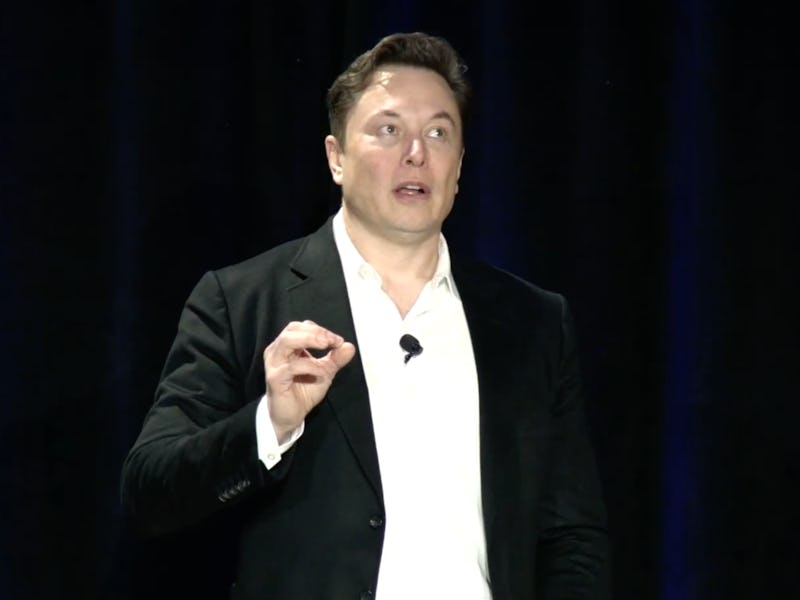Elon Musk Talks Simulation Theory at Tesla Autonomy-Focused Investor Event
The simulation never ends.

Elon Musk can’t quite help himself. At a Tesla event Monday that was meant to be dedicated to explaining its autonomous driving technology to investors, the CEO dropped a reference to one of his favorite theories: the world is just an elaborate simulation, The Matrix-style.
The event detailed how Tesla’s Autopilot-equipped fleet of nearly half a million electric cars worldwide can help train the company’s artificial intelligence. A relatively dry look at how the company aims to reach hands-free driving by next year took an abrupt turn into one of Musk’s passions when an investor asked why real-world cars were better than simulated cars. After all, Waymo has racked up billions of simulated miles and its technology looks impressive.
“We have a quite a good simulation too, but it just does not capture the long tail of weird things that happen in the real world. If the simulation fully captured the real world…well, I mean, that would be proof that we’re living in a simulation I think,” Musk said, to laughs around the room.
“It doesn’t,” he said as the laughter died down. “I wish! But simulations do not capture the real world. The real world is really weird and messy.”
The theory was perhaps best popularized by 1999 film The Matrix, where machines wired up human brains to an elaborate dream world. In a 2003 paper, academic Nick Bostrom argued that humanity is highly likely to be living in a computer simulation. Muse, the British rock band fronted by conspiracy aficionado Matt Bellamy, released an album titled Simulation Theory last August.
Alongside the growth of dangerous A.I. and the rate of climate change, simulation theory is a strong passion for Musk. At a 2016 Recode conference, he argued that as video games grow more elaborate year after year, it seems incredibly likely that a technology could exist to create a simulation elaborate enough to power our reality. In an interview earlier this month, Musk said that he would ask a super-intelligent A.I. one question: “what’s outside the simulation?”
While Musk’s argument appears to make a lot of sense, the simulation theory has received its fair share of criticism. New York University Silver Professor of Philosophy Ned Block told Inverse in 2016 that “everything we know about the nature of conscious experience suggests that it is dependent on its actual realization in us.”
Unfortunately, as Musk admitted himself in this month’s interview, it may not be possible to test whether humanity is in a simulation. That means, as Tesla develops its autonomous driving system further, Musk may be disappointed to find that it doesn’t inadvertently lead to any proof that humanity is in a simulation.